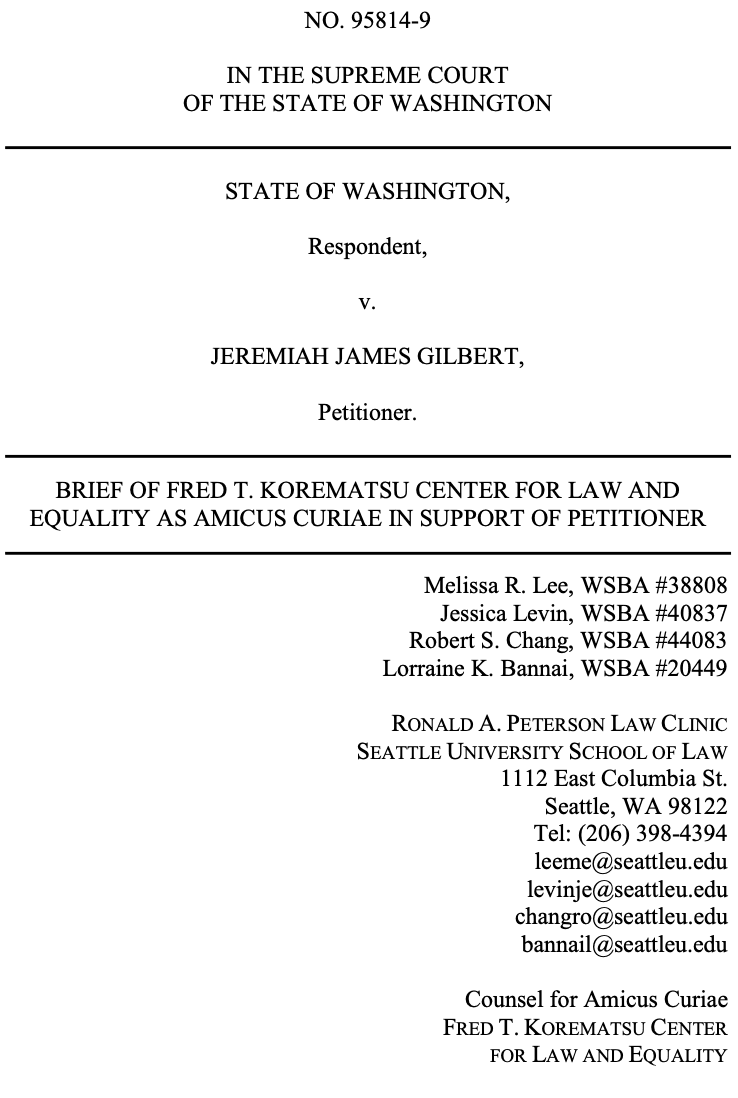
Summary of Argument
This Court has made great strides in advancing juvenile justice under the Eighth Amendment, incorporating and expanding the central teachings of Roper, Graham, Miller, and Montgomery in O’Dell, Ramos, and Houston-Sconiers. In Bassett, this Court built upon those decisions to categorically bar juvenile life without parole, this time grounding its decision in article I, section 14 of the Washington constitution.In Houston-Sconiers, this Court established that sentencing courts must consider the mitigating qualities of youth at the time of sentencing, and afforded trial courts ultimate discretion to depart from adult sentencing schemes when sentencing juveniles for any crime. However, Houston-Sconiers left open the possibility that the exercise of that discretion might result in a life equivalent sentence, because it did not address courts’ duty to avoid such sentences. Mr. Gilbert’s case is an opportunity for this Court to continue building our state’s juvenile justice jurisprudence and to address what Houston-Sconiers left unaddressed— the affirmative duty that Washington courts have under article I, section 14 to ensure that juveniles have a meaningful opportunity for release.